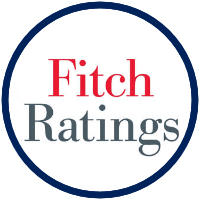Two stories dominated the gaming industry last week: Illinois’ approval of a graduated tax increase on online sports betting operators and investor discontent with Penn Entertainment.
Of course, Wall Street took notice.
Illinois sports betting
 Truist Securities analyst Barry Jonas on June 2 referenced a conference call with Brendan Bussmann of B Global on the Illinois situation. “Stocks traded lower on wider fears of contagion and there’s clear concern that other states could potentially follow suit,” Jonas wrote. “As a proponent of lower tax operating environments, Mr. Bussmann believes the hike to be unfortunate as it punishes the operators already providing the state with sizable tax revenues. With the state now targeting $200 million of incremental taxes, Mr. Bussmann sees a worse product offering (less innovation), worse odds and less promos being passed to Illinois customers. Similar to what we discussed in our note, Mr. Bussmann sees the non-taxpaying offshore OSB operators as beneficiaries of the hike.”
Truist Securities analyst Barry Jonas on June 2 referenced a conference call with Brendan Bussmann of B Global on the Illinois situation. “Stocks traded lower on wider fears of contagion and there’s clear concern that other states could potentially follow suit,” Jonas wrote. “As a proponent of lower tax operating environments, Mr. Bussmann believes the hike to be unfortunate as it punishes the operators already providing the state with sizable tax revenues. With the state now targeting $200 million of incremental taxes, Mr. Bussmann sees a worse product offering (less innovation), worse odds and less promos being passed to Illinois customers. Similar to what we discussed in our note, Mr. Bussmann sees the non-taxpaying offshore OSB operators as beneficiaries of the hike.”
 Jefferies analyst David Katz May 31 also examined the Illinois legislation. “The progressive wagering tax would impose a 40% rate on operators with adjusted gross revenue of (more than) $200M, which would be second highest vs. New York’s 51% tax rate,” Katz wrote. “The Street debate over whether other states would follow suit presents a reasonable uncertainty, although we believe operators can mitigate most reasonable levels of incremental tax increases, which is supported by instances in other global markets.”
Jefferies analyst David Katz May 31 also examined the Illinois legislation. “The progressive wagering tax would impose a 40% rate on operators with adjusted gross revenue of (more than) $200M, which would be second highest vs. New York’s 51% tax rate,” Katz wrote. “The Street debate over whether other states would follow suit presents a reasonable uncertainty, although we believe operators can mitigate most reasonable levels of incremental tax increases, which is supported by instances in other global markets.”
Penn Entertainment
 Analyst Joseph Greff of J. P. Morgan May 31 examined a letter from the Donerail Group that questioned Penn Entertainment’s strategy and leadership.
Analyst Joseph Greff of J. P. Morgan May 31 examined a letter from the Donerail Group that questioned Penn Entertainment’s strategy and leadership.
“This investor topic of why Penn doesn’t sell itself, in whole or in parts, isn’t exactly a new one and is one that we have been fielding from the buy-side for over a year now, but it has picked up in recent months,” Greff wrote. “The challenges for the current Penn board, or a potentially revamped one, are:
“(1) Who is a logical buyer given that we see a smaller buyer universe, especially the mid- to larger-cap publicly traded ones having overconcentration issues)?
“(2) What price(s) can these separated assets and cash flows fetch in the current economic cycle, in which every buy-side investor conversation starts with `Is this peak GGR and margin?’ and `How weak will the regional gaming consumer get from here?’ – we suspect any buyer will share these same concerns and this could result in wide valuation scenarios.
“(3) How can a reasonably sizable enterprise value be financed in the current cost of capital terms (obviously higher than recent years) given (2)?
“And (4) how to disentangle commitments related to ESPN BET ($150 million annual license fees to ESPN alone, for a minimum of three years, but there is committed advertising and other sizable opex, too)? So, in short, we think a buyer for Penn is highly difficult and don’t see agitation resulting in anything that sustains shareholder value creation. We rate Penn neutral.”
David Katz of Jefferies also looked at Penn’s prospects. “The letter highlights the value and stability of regional gaming, while the estimated ~$4 billion investment in interactive since 2020 has overshadowed the land-based strength,”Katz wrote. “Most importantly, the letter proposes putting the company up for sale, which presents a complex debate over the prospective buyers, given the operating company structure and the commitment to ESPN Bet. However, pending clarity on an outcome, we expect there is prospective read-across for other regional casino players and prospectively for digital operators should ESPN change direction.”
PCI Gaming Authority
 On May 30, Fitch Ratings, in a written statement, affirmed PCI (Poarch Band of Creek Indian) Gaming Authority’s long-term issuer default rating at ‘BBB-‘ and as part of the refinancing, assigned ratings to the proposed term loan and revolving credit facility at ‘BBB-‘. “The refinancing is leverage neutral and expected to decrease PCI’s interest burden. The rating outlook is negative.
On May 30, Fitch Ratings, in a written statement, affirmed PCI (Poarch Band of Creek Indian) Gaming Authority’s long-term issuer default rating at ‘BBB-‘ and as part of the refinancing, assigned ratings to the proposed term loan and revolving credit facility at ‘BBB-‘. “The refinancing is leverage neutral and expected to decrease PCI’s interest burden. The rating outlook is negative.
“The negative outlook reflects the heightened probability of PCI maintaining leverage above Fitch’s 2.0x negative threshold due to its Chicago Southland development and other investments. Additionally, heightened medium-term risks to properties in Alabama and Pennsylvania are viewed as catalysts that could drive more aggressive capital deployment and increased leverage over the rating horizon as the issuer seeks to further diversify.”


